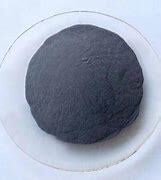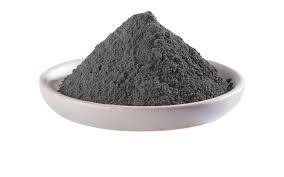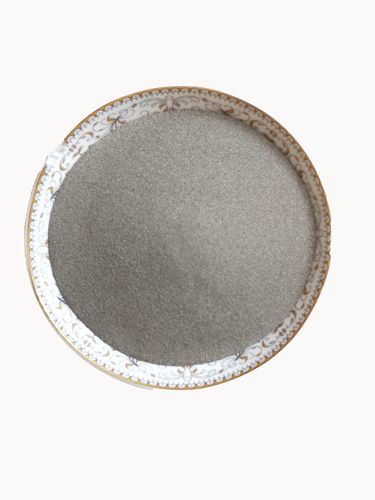Overview of Custom CNC Lathe Machining Cutting Turning Tools Processing Titanium Alloy Finish Carbide Grooving Inserts
Titanium Carbide (TiC) is a technical ceramic material renowned for its exceptional hardness, wear resistance, and high melting point. Composed of titanium and carbon atoms, it forms a part of the wider family of transition metal carbides. Its unique combination of properties makes it a versatile and valuable component in various industrial applications where extreme conditions necessitate robust and durable materials.
Features of Custom CNC Lathe Machining Cutting Turning Tools Processing Titanium Alloy Finish Carbide Grooving Inserts
-
Exceptional Hardness: With a Vickers hardness ranging from 2000 to 3200 Hv, TiC ranks among the hardest materials, surpassing many steels and rivaling tungsten carbide.
-
High Melting Point: Boasting a melting point of approximately 3160°C, titanium carbide is ideal for high-temperature applications where stability and strength are crucial.
-
Oxidation Resistance: Forms a protective oxide layer at elevated temperatures, slowing down further oxidation and enhancing its performance in oxidative environments.
-
Chemical Stability: Resistant to most acids and alkalis, TiC maintains its integrity in corrosive conditions, excluding hydrofluoric acid and strong alkalis.
-
Thermal Conductivity: Exhibits good thermal conductivity, facilitating heat dissipation and enhancing performance in high-heat-load applications.
-
Density: Despite its hardness, titanium carbide has a relatively low density of about 4.93 g/cm³, contributing to its use in lightweight yet durable structures.

(Custom CNC Lathe Machining Cutting Turning Tools Processing Titanium Alloy Finish Carbide Grooving Inserts)
Parameters of Custom CNC Lathe Machining Cutting Turning Tools Processing Titanium Alloy Finish Carbide Grooving Inserts
1. Parameters for Custom CNC Lathe Machining Cutting Turning Tools:
* Dimensioning and Machining Settings: Set the dimensions of the tool, including the tool size, material type, design features (e.g., jaw position, feed speed, blade pitch), and tool distance from the workpiece.
* Cutting Settings: Adjust the cutting speed to ensure the highest possible cut quality and accuracy. Also, consider adjusting the depth and thread profile of the tool as required for different tasks.
* Tapping Settings: Control the tapping efficiency by using the action bar on the lathe control panel or adjusting the taps to meet specific tolerances.
* Squeezing Settings: Fine-tune the blade and press to adjust the cantilever stroke and give a smooth feel when working with titanium alloy materials.
2. Parameters for Processing Titanium Finish Carbide Grooving Inserts:
* Technology: Consider using an appropriate technology such as metal cutting saw, high-speed tooling, or nanowire laser slicing. The choice of technology will depend on the complexity of the grinding process and the desired results.
* Tool Settings: Adjust the tool parameters based on the type of titanium (e.g., carbide, grade) and the materials being processed. For example, for carbide, the tool should be ajusted to achieve the proper profile and stability.
* Time Complexity: Consider the time it takes to complete the grinding process, especially for large volumes. This will affect the processing rate, accuracy, and job volume.
* Post-processing Conditions: Treat the polished final product as if it is finished in the shop. Handle any rough edges carefully to prevent damage.
3. Parameters for Processing Carbide Grooving Inserts:
* Technology: Select a carbide grit that meets your application requirements, such as 450S, 600M, or 800Si. Choose a grit size that is appropriate for the desired surface finish and material type.
* Tool Settings: Adjust the tool parameters based on the type of carbide (e.g., niC, SiC, Al2O3), (e.g., silicon carbide), feed speed, and pressing temperature.
* Cutting and Fitting Settings: Ensure proper alignment and tool pose while operating the carbide or any other cutting system. Carefully align the ends of the workpieces and avoid overslipping them to avoid damaging the machine.
* Threadament Settings: Consider adjusting the threadament length and threading direction to ensure consistent threading. For aluminum cold-formed applications, use a shallow threadament.
4. Parameters for Processing Golden Foundation Glowing Insertions:
* Technology: suitable tool types for the golden (e.g., industrial roller cutters, quill drivers, or roller cutters). The tool should be designed to accommodate the angle of rotation and load capacity for theinking compound used in the grinding process.
* Tool Settings: Adjust the tool parameters based on the type of golden (e.g., pasta, cutting uniformity, or polished finishes) and the processes used. For example, for pasta grinding, adjust the weight distribution and to produce evenly distributed wear patterns.
* Cutting and Fitting Settings: Ensure proper alignment and tension of the tool during operation. Apply enough force to efficiently grind the pasta into smooth, flat surfaces.
* Carbon Dioxide Profiles: For the quality control of carbon dioxide profiles, consider adjusting the carbon dioxide concentration to match the appropriate recipe or manufacturer’s guidelines. Use clean air intake filters to reduce gas emissions and improve the overall productivity of the process.

(Custom CNC Lathe Machining Cutting Turning Tools Processing Titanium Alloy Finish Carbide Grooving Inserts)
Applications of Custom CNC Lathe Machining Cutting Turning Tools Processing Titanium Alloy Finish Carbide Grooving Inserts
-
Cutting Tools: Integrated into tool bits, inserts, and milling cutters due to its wear resistance and heat tolerance, enhancing tool life and machining efficiency.
-
Metalworking: As hardfacing coatings for dies, molds, and wear parts subjected to severe abrasive or erosive conditions.
-
Cemented Carbides: Mixed with other carbides and binders to form cemented carbide composites for drill bits, end mills, and other cutting tools.
-
Abrasive and Wear-Resistant Components: Used in pump parts, valve components, and seals where resistance to wear and corrosion is vital.
-
Military Armor: Incorporated into armor plating due to its hardness and lightweight properties, offering enhanced protection without adding excessive weight.
-
Chemical Processing Equipment: For parts that come into contact with corrosive chemicals, benefiting from TiC’s resistance to chemical attack.
Company Profile
MyCarbides is a trusted global chemical material supplier & manufacturer with over 12-year-experience in providing super high-quality carbides and relative products.
The company has a professional technical department and Quality Supervision Department, a well-equipped laboratory, and equipped with advanced testing equipment and after-sales customer service center.
If you are looking for high-quality carbide materials and relative products, please feel free to contact us or click on the needed products to send an inquiry.
Payment Methods
L/C, T/T, Western Union, Paypal, Credit Card etc.
Shipment
It could be shipped by sea, by air, or by reveal ASAP as soon as repayment receipt.
FAQs of Custom CNC Lathe Machining Cutting Turning Tools Processing Titanium Alloy Finish Carbide Grooving Inserts
Q: How is Custom CNC Lathe Machining Cutting Turning Tools Processing Titanium Alloy Finish Carbide Grooving Inserts manufactured?
A: Custom CNC Lathe Machining Cutting Turning Tools Processing Titanium Alloy Finish Carbide Grooving Inserts is typically produced through a process called carbothermal reduction, which involves reacting titanium dioxide with carbon at high temperatures.
Q: Is Custom CNC Lathe Machining Cutting Turning Tools Processing Titanium Alloy Finish Carbide Grooving Inserts biocompatible?
A: While pure titanium is highly biocompatible, the biocompatibility of titanium carbide depends on the specific application and the potential release of titanium ions. Further testing is necessary for biomedical applications.
Q: How does Custom CNC Lathe Machining Cutting Turning Tools Processing Titanium Alloy Finish Carbide Grooving Inserts compare to tungsten carbide in terms of hardness and toughness?
A: Both materials are hard, but tungsten carbide (WC) is slightly harder and tougher than titanium carbide, making WC more commonly used in tooling applications.
Q: Can Custom CNC Lathe Machining Cutting Turning Tools Processing Titanium Alloy Finish Carbide Grooving Inserts be machined?
A: Due to its extreme hardness, traditional machining methods are challenging. Instead, TiC components are often formed through powder metallurgy, sintering, or by applying coatings via thermal spray or Physical Vapor Deposition (PVD).
Q: What are the main advantages of using Custom CNC Lathe Machining Cutting Turning Tools Processing Titanium Alloy Finish Carbide Grooving Inserts in cutting tools?
A: TiC enhances tool life, allows for higher cutting speeds, and improves wear resistance, especially in applications involving high temperatures or abrasive materials.

(Custom CNC Lathe Machining Cutting Turning Tools Processing Titanium Alloy Finish Carbide Grooving Inserts)





